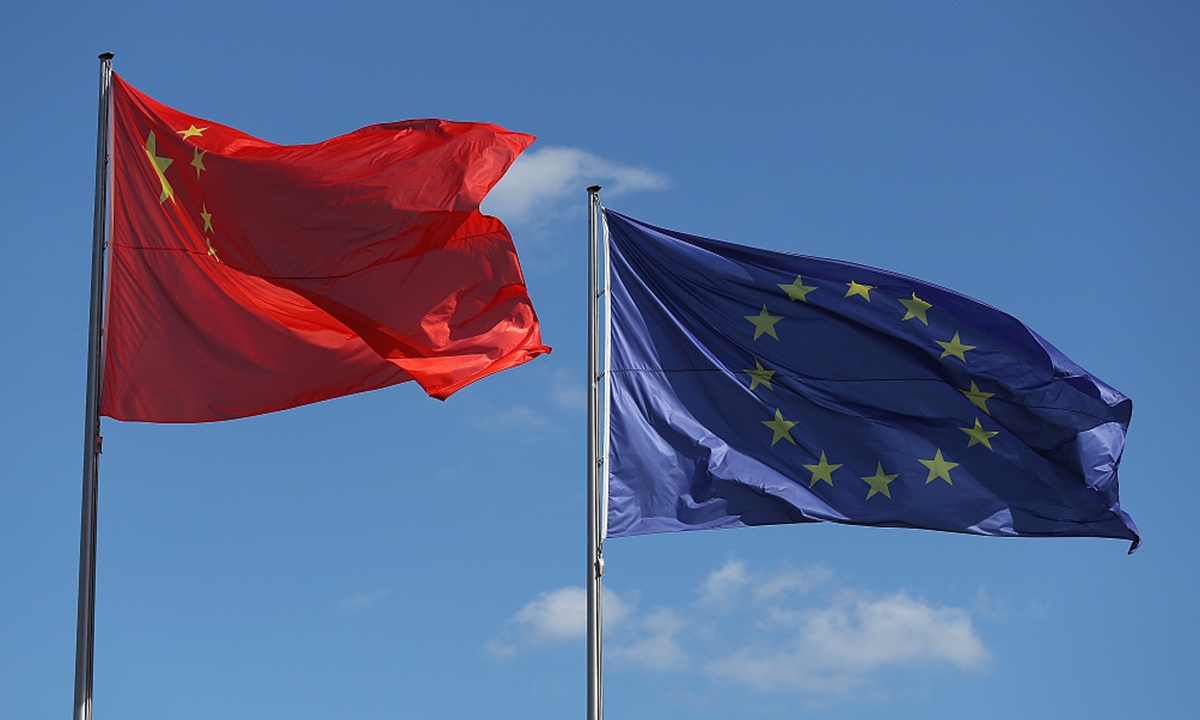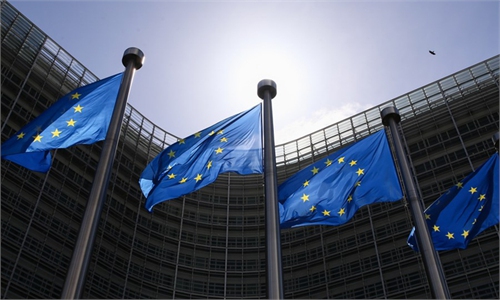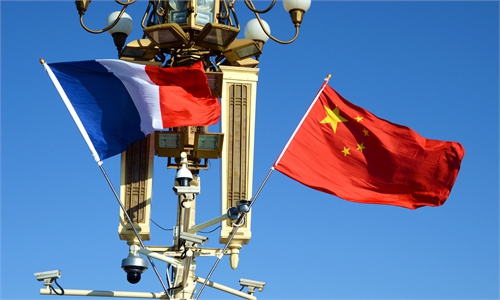Asia-Europe summit to boost cooperation, as EU won't blindly heed to US containment of China
Economic interests in Indo-Pacific region weigh more on EU than political considerations: observers

China EU Photo:VCG
Chinese Premier Li Keqiang attended the 13th Asia-Europe Meeting (ASEM) Summit via video link and delivered a speech on Thursday, in which he called for enhancing collaboration over the research and development of vaccines and drugs as ways to deal with the COVID-19 pandemic, as well as efforts to boost connectivity.Chinese observers expressed optimism over the Asia-Europe cooperation in a wide range of areas, including trade, investment, pandemic fight and green industry.
We must uphold the spirit of openness, tolerance, and win-win cooperation, adhere to integrated and linked development, accelerate the construction of a network of "fast channels" for personnel exchanges and "green channels" for the circulation of goods, and maintain the stability and smoothness of the global industrial and supply chain, the Chinese premier said.
Marking ASEM's 25th anniversary, the meeting brought together the leaders of European and Asian members, the European Union (EU) and the ASEAN secretariat. Cambodia holds the rotating ASEM presidency.
Zhao Junjie, a research fellow at the Chinese Academy of Social Sciences' Institute of European Studies, told the Global Times on Thursday that the Chinese premier's attendance is expected to boost infrastructure development under the Belt and Road Initiative and support of the Asian Infrastructure Investment Bank.
Although the US is wooing European countries, which have emphasized their democratic values, to form a Western bloc, the US and Europe have different geopolitical considerations in Asia, Ding Chun, director of the Center for European Studies at Fudan University, told the Global Times on Thursday.
He said that unlike the US which aims to contain China based on its geopolitical considerations, Europe values substantial economic interests in the region more than confrontational issues, which will help formulate mutually beneficial Asia-Europe cooperation in the region.
As a major power in the region, China is one of the most important proponents and practitioners of regional cooperation. The powerful magnetism of China's massive consumer market continues to attract European companies to invest in China, and thus propels and enhances the European economy. Technology and products from Europe are also assisting and supporting China's economic transformation, said observers.
Nearly 60 percent of European companies plan to expand their businesses in China this year, an increase of nearly 10 percentage points from the 51 percent surveyed last year, a survey released by the European Union Chamber of Commerce in China showed in June.
However, naysayers in some Western media claim that the EU-China Comprehensive Agreement on Investment (CAI) signed in late December 2020 is in "jeopardy" after EU ambassadors approved the renewal of sanctions on four Chinese officials and one Chinese entity on November 24, 2021 as part of an extension of a so-called human rights blacklist, Reuters reported.
The European Parliament voted to freeze the CAI in May, putting the brakes on ratifying the massive deal that is envisioned to assist the bloc's economic recovery amid lingering COVID-19 woes.
Ding adopted a wait-and-see attitude to the restart of the CAI, saying freezing CAI politicizes economic and trade issues, which victimizes business communities.
Zhao said US interference is clear in Europe's handling of the issue and relations with China. On the one hand, Europe is seeking to expand economic and trade exchanges and cooperation with China; on the other, Europe is constantly under pressure from the US and held hostage by populism within the EU, Zhao noted.
Observers believe the sanctions will not put trade talks on hold as cooperation between China and EU leads to win-win results.
The economies of Asia and Europe, especially China and Europe, cannot be unhooked from each other, Ding said. European companies do not want to politicize economic issues or blindly follow anti-China politicians, he noted.
China became the EU's top trading partner in 2020. Their trade in the first three quarters of 2021 reached $599.3 billion, an increase of 30.4 percent year-on-year, official data shows.




